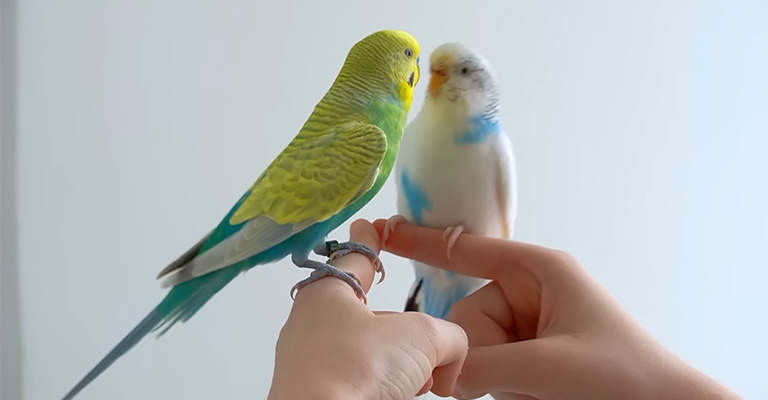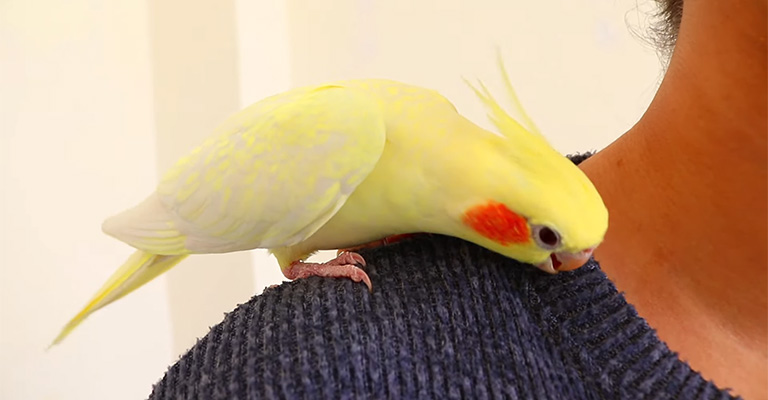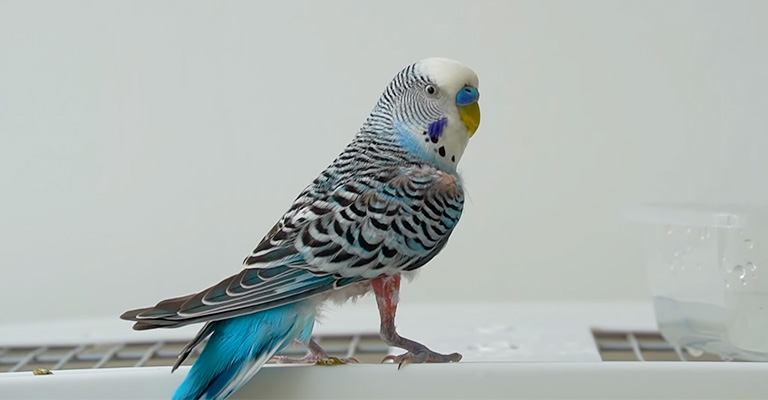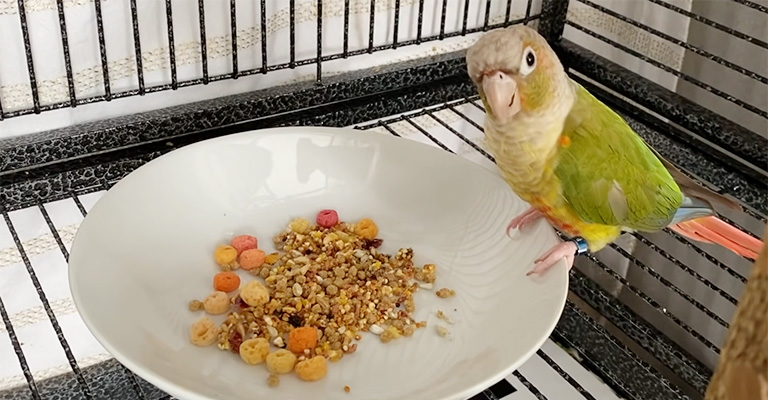The decision to bring a pet bird into your life is a significant step that goes beyond mere companionship. Before embarking on this feathered journey, it’s essential to carefully consider several factors that will impact both your life and the well-being of the avian friend you’re inviting in.
From understanding what should one consider before getting a pet bird that comes with bird ownership to selecting the right species that aligns with your lifestyle, each consideration plays a pivotal role in ensuring a harmonious and fulfilling relationship between you and your future feathered companion.

What Should One Consider Before Getting A Pet Bird?
Getting a pet bird is a big decision that requires careful consideration. Birds are beautiful, intelligent, and social animals, but they also have specific needs and challenges that you should be aware of before bringing one into your home.
Here are some things you should consider before getting a pet bird:
Lifespan Of The Bird
Different bird species have different lifespans, ranging from a few years to several decades.
Some birds, such as macaws, cockatoos, and African greys, can live up to 60 years or more. This means that you need to be prepared to commit to caring for your bird for a long time or to make arrangements for its future in case something happens to you.
Size Of The Cage
Birds need a spacious and comfortable cage where they can rest, sleep, eat, drink, and play.
The cage should be large enough for your bird to move around freely, stretch its wings, and have access to perches, toys, food bowls, and water bottles. The cage should also be sturdy and made from non-toxic materials.
Foods It Will Require
Birds need a balanced and varied diet that meets their nutritional needs. Different types of birds have different dietary preferences and requirements.
For example, some birds are seed-eaters, some are fruit-eaters, some are omnivores, and some are nectar-eaters.
You should research the best foods for your bird species and provide them with fresh food and water every day.
Noise Level
Birds can be noisy pets, especially during the morning and evening hours. Some birds are louder than others, depending on their species, personality, and mood.
For example, parrots are known for their vocal abilities and can learn to talk and mimic sounds. Other birds, such as finches and canaries, make pleasant chirping sounds.
You should consider the noise level of the bird and how it will affect you and your neighbors.
Time And Attention The Species Needs
Birds are social creatures that need a lot of mental and physical stimulation. Some birds are more demanding than others, depending on their species, personality, and upbringing.
For example, parrots are very intelligent and need a lot of interaction and training to keep them happy and healthy. Other birds, such as doves and pigeons, are more peaceful and quiet and do not need as much attention.
Potential Hazards In Your Home

Birds are curious and adventurous animals that can get into trouble if they are not supervised or protected.
There are many things in your home that can be dangerous or harmful to your bird, such as fans, windows, mirrors, wires, toxic plants, or other pets.
You should bird-proof your home by removing or covering any potential hazards before letting your bird out of its cage.
Grooming Needs
Birds need regular grooming to keep their feathers, skin, nails, and beaks in good condition. Some grooming tasks you can do yourself at home, such as trimming your bird’s nails or bathing your bird with a spray bottle or a shallow dish of water.
Other grooming tasks may require professional help from a veterinarian or an experienced groomer, such as clipping your bird’s wings or trimming its beak.
Health Care Needs
Birds need regular health check-ups from a veterinarian who specializes in avian medicine.
You should take your bird to the vet at least once a year for a physical examination, blood tests, parasite screening, and vaccination if needed.
You should also monitor your bird’s health at home by observing its behavior, appetite, weight, droppings, and feathers. If you notice any signs of illness or injury in your bird, you should contact your vet immediately.
Personality
Birds have different personalities that can affect their compatibility with you and your lifestyle.
Some birds are more outgoing and playful, while others are more shy and cautious. Some birds are more independent and stubborn, while others are more dependent and obedient.
Some birds are more friendly and sociable with other birds or people, while others are more aggressive or territorial. You should research the personality traits of different bird species and choose one that matches your expectations and preferences.
Precautions To Consider Before Getting A Pet Bird

Before getting a pet bird, you should consider the following precautions to ensure the well-being of your feathered friend and yourself:
Get Rid Of Unsafe Cookware
Teflon or nonstick cookware can be fatal to pet birds. The coating gives off a toxic, odorless fume when heated that can kill a bird within minutes.
You should replace your cookware with bird-safe materials such as stainless steel or cast iron.
Say Goodbye To Candles And Air Fresheners
Scented candles, oils, air fresheners, cleaning supplies, and other chemical products can pose a health hazard to your pet.
Birds have extremely sensitive respiratory systems, which are easily irritated by chemicals and fumes. You should use natural or bird-safe alternatives to freshen your home and clean your bird’s cage.
Never Smoke In The House
Cigarette smoke is very harmful to your bird, as well as to you. It can cause respiratory problems, infections, allergies, and even cancer in birds.
If you smoke, you should do it outside and away from any open windows. You should also wash your hands before handling your bird and change your clothes if they smell of smoke.
Plan On Waking Up Early
Birds are early risers and will wake up with the sun or with any noise they hear. They will expect you to feed them, change their water, and interact with them as soon as they wake up.
You should adjust your sleep schedule to accommodate your bird’s needs and cover their cage with a light-blocking cloth at night to ensure they get enough rest.
Invest In A Good Vacuum
Birds can be messy pets, especially when they eat, molt, or play. They can scatter food, feathers, dust, and droppings all over their cage and the surrounding area.
You will need to sweep or vacuum daily to keep your home clean and prevent any health issues for you and your bird.
Remove Toxic Houseplants
Some common houseplants can be poisonous or irritating to birds if they chew on them or ingest them. These include lilies, ivy, philodendron, dieffenbachia, and many others. You should either get rid of these plants or keep them out of your bird’s reach.
Watch What You Wear
Birds are naturally attracted to shiny objects, such as jewelry, buttons, sequins, or zippers.
They may try to nibble on them or pull them off your clothes, which can damage your apparel or hurt your bird. You should remove any shiny items before handling your bird or wear bird-safe clothing.
Plan To Commit Lots Of Time And Effort
Birds are not low-maintenance pets. They need regular care, attention, stimulation, training, grooming, and health check-ups.
Some birds are more demanding than others, but they all require a lot of dedication and responsibility from their owners.
You should make sure you have enough time, money, and energy to provide for your bird’s needs before getting one.
Choose The Right Bird For You
There are many different types of birds that have different personalities, traits, and requirements. Some birds are more suitable for beginners than others.
Some birds are more friendly and sociable than others. Some birds are more noisy and messy than others.
You should research the characteristics of different bird species and choose one that matches your expectations and preferences.
Common Mistakes People Make When They Pet A Bird For The First Time

Certainly, here are nine common mistakes that people often make when they pet a bird for the first time:
Inadequate Research
Not thoroughly researching the specific needs, behaviors, and care requirements of the chosen bird species can lead to misunderstandings and poor care decisions.
Choosing the Wrong Species
Selecting a bird solely based on appearance without considering its personality, noise level, and activity requirements can result in a mismatched pet.
Impulse Buying
Making an impulsive decision to get a pet bird without fully understanding the long-term commitment, responsibilities, and costs involved.
Improper Cage Setup
Providing an inappropriate cage size, lack of essential perches, toys, or inadequate placement can affect the bird’s physical and mental well-being.
Lack of Socialization
Failing to spend enough time bonding and interacting with the bird can lead to behavioral problems, stress, and lack of trust.
Unbalanced Diet
Feeding an incorrect diet lacking in variety, essential nutrients, and fresh foods can negatively impact the bird’s health and longevity.
Ignoring Veterinary Care
Neglecting regular check-ups and proper medical care can lead to undiagnosed health issues and preventable illnesses.
Forcing Interaction
Forcing the bird into interactions or handling before it’s comfortable can lead to fear and aggression, hindering the development of a positive relationship.
Not Respecting Boundaries
Ignoring the bird’s body language and pushing them beyond their comfort zone can lead to stress and decreased trust.
Understanding and avoiding these common mistakes is crucial when bringing a pet bird into your home.
Taking the time to research, educate yourself, and seek advice from experienced bird owners or avian professionals can help create a positive and enriching experience for both you and your new feathered friend.
FAQ
Consider your lifestyle, time availability, budget for care and supplies, and the space you have at home.
Research different bird species to find one that matches your preferences and commitment level.
Birds need daily interaction, mental stimulation, and socialization. Depending on the species, this can range from 1 to 4 hours or more of active engagement and playtime.
Choose an appropriately sized cage with horizontal bars for climbing, along with perches, toys, and a separate area for sleeping.
The cage should be placed in a quiet, draft-free area away from direct sunlight and household hazards.
Regular avian vet check-ups are crucial for preventive care. Birds are sensitive to household toxins, so avoid exposing them to fumes, smoke, and nonstick cookware. Proper diet, exercise, and maintaining a clean environment are also vital for their well-being.
Bird-proof your home by removing toxic plants, securing windows and doors, and covering reflective surfaces that might confuse the bird.
Create an enriching environment with appropriate toys, perches, and space for exploration both inside and outside the cage.
Conclusion
The choice to add a pet bird to your household is a commitment that requires thoughtful consideration and preparation.
Evaluating your readiness for the responsibilities of avian care, choosing an appropriate species, and creating a bird-friendly environment are all vital steps in this process.
By doing thorough research, seeking advice from experienced bird owners, and being honest about your ability to meet the needs of a pet bird, you can set the stage for a rewarding and lasting bond.
Remember, a well-informed decision ensures that both you and your pet bird embark on a journey filled with joy, companionship, and mutual respect.